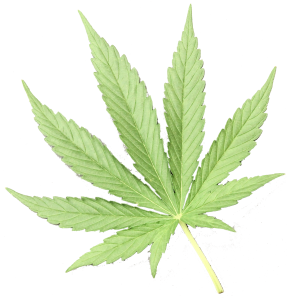Cannabis
Cannabis can affect your overall health. Following Canada’s Lower-Risk Cannabis Use Guidelines can help reduce risk.

Cannabis can affect your overall health. Following Canada’s Lower-Risk Cannabis Use Guidelines can help reduce risk.

Cannabis contains many different types of chemicals, however, tetrahydrocannabinol (THC) is the main active chemical in the cannabis plant that gives people who use it a ‘high’. THC affects brain areas that control memory, concentration and coordination. Cannabidiol (CBD) is an active chemical in the cannabis plant that can be used for medicinal purposes with authorization from a health care provider. The levels of THC and CBD vary depending on the plant strain or product type used, with some products containing very high levels of THC.
Using cannabis may also cause other side-effects. It can:
Cannabis use is also linked with health risks, including:
If you use cannabis, following Canada’s Lower-Risk Cannabis Use Guidelines may reduce these health risks.
If you think you might be pregnant or know that you are pregnant, no cannabis use is the safest choice.
Cannabis smoke, including second-hand cannabis smoke, is harmful. It has many of the same harmful chemicals as tobacco smoke. Some studies have shown second-hand cannabis smoke is even more toxic to cells in your body than tobacco smoke. There is no known safe level of exposure.
If you are exposed to second-hand cannabis smoke in an enclosed space, you may find that it affects your mood and ability to think clearly, including becoming too impaired to drive. Afterwards, cannabis could be detected in your body. The amount of cannabis detected can vary according to many factors, including the amount of cannabis smoke you are exposed to and how long you were exposed to it. To prevent exposure to cannabis smoke or vapour, ask those around you to consume cannabis products outdoors or in a well-ventilated area to reduce this risk.
More research is required to understand the health effects of long-term exposure to second-hand cannabis smoke.
People use cannabis for many different reasons. Some people may find that their cannabis use is stopping them from enjoying day-to-day life. It’s important to remember that using cannabis is not risk-free.
Here are a few signs that cannabis use may be a problem:
Learn more about the signs that cannabis may be a problem.
If you choose to use cannabis, following Canada’s Lower-Risk Cannabis Use Guidelines can reduce your risks.
If you’re concerned about your cannabis use, or the cannabis use of your partner, call the Primary Care Alberta helpline, toll-free, 24/7 at 1-866-332-2322. For more information and to find services in your area go to Recovery Alberta – Substance use and addiction.
It’s hard to ask for help because you may be worried about being judged by others. It’s never too late to make changes to your cannabis use. It’s never too soon to ask for help and support if you have concerns about someone else’s cannabis use.
There are many resources and services to help you or someone you know with concerns about cannabis use.
Talk with your health care provider for information on cutting down or quitting. If you use cannabis for medical reasons, talk with your health care provider about finding a safer alternative while trying to become pregnant.
If you’re concerned about your cannabis use, or the cannabis use of your partner, call the Primary Care Alberta’s helpline, toll-free, 24/7 at 1-866-332-2322. For more information and to find services in your area go to Recovery Alberta – Substance use and addiction.
Ready or Not contains a lot of information. So we created My To-Do List for you to use as a personal reminder, share with your partner, or bring to your next check-up.
Be sure to click “Add this to my To-Do List” anytime you see something you want to print, email, save, or share. Because we do not ask for any personal information, your list will only be saved for a week after your last added item.



